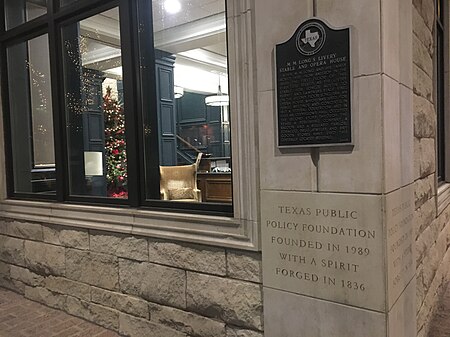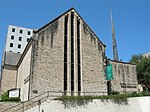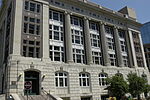Texas Public Policy Foundation

The Texas Public Policy Foundation (TPPF) is a conservative think tank based in Austin, Texas. The organization was founded in 1989 by James R. Leininger, who sought intellectual support for his education reform ideas, including public school vouchers. Projects of the organization include Right on Crime, which is focused on criminal justice reform, and Fueling Freedom, which seeks to "explain the forgotten moral case for fossil fuels" by rejecting the scientific consensus on climate change.In 2015, TPPF had total revenue of $10.8 million. Donors to the organization include energy companies Chevron, ExxonMobil, and other fossil fuel interests. The stated mission of TPPF is "to promote and defend liberty, personal responsibility, and free enterprise in Texas and the nation by educating and affecting policymakers and the Texas public policy debate with academically sound research and outreach."In 2018, TPPF opened an office in Washington, D.C.
Excerpt from the Wikipedia article Texas Public Policy Foundation (License: CC BY-SA 3.0, Authors, Images).Texas Public Policy Foundation
Congress Avenue, Austin
Geographical coordinates (GPS) Address Nearby Places Show on map
Geographical coordinates (GPS)
| Latitude | Longitude |
|---|---|
| N 30.2709 ° | E -97.7413 ° |
Address
Congress Avenue 901 1/2
78701 Austin
Texas, United States
Open on Google Maps









